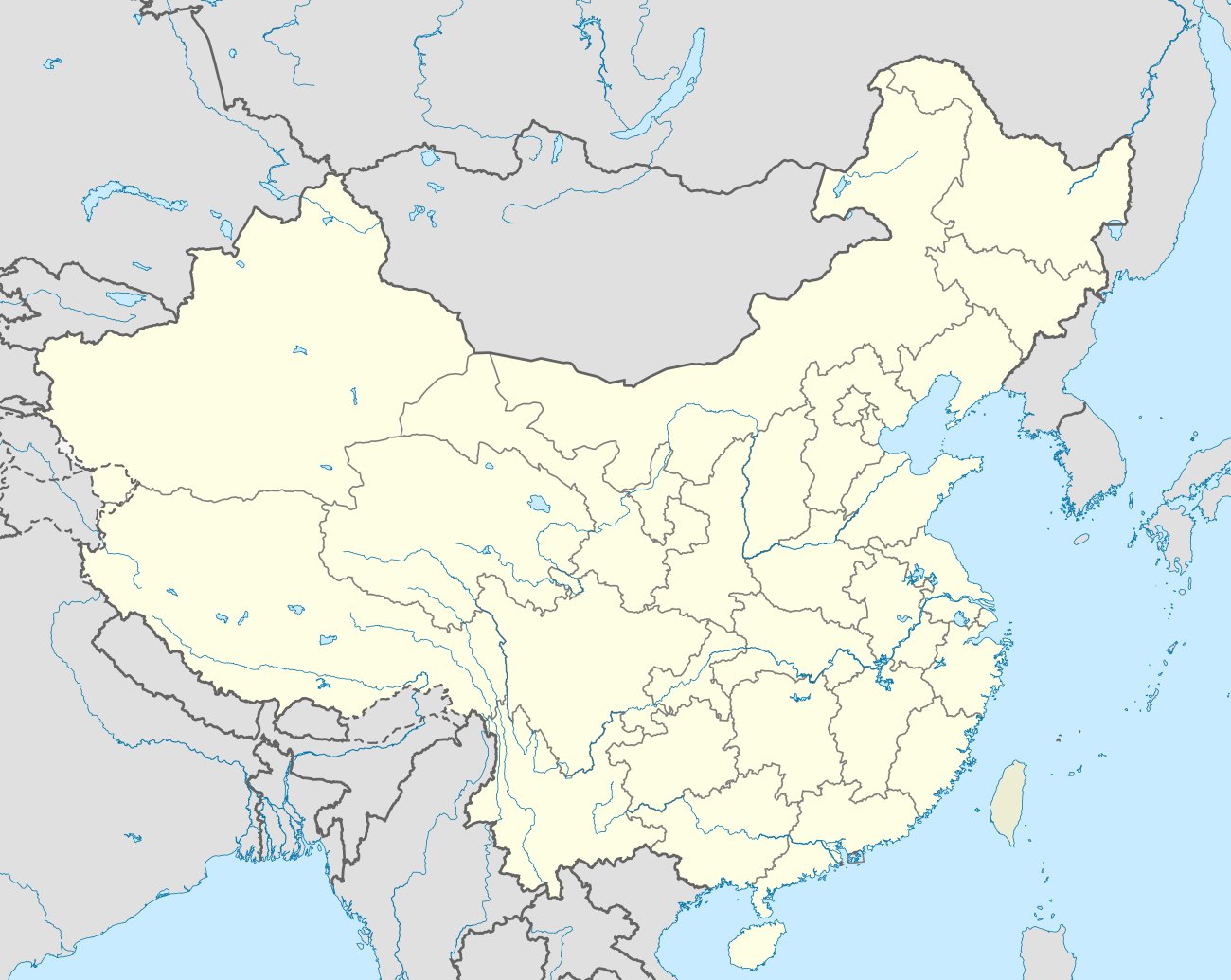2010 Jiangxi derailment
| Fuzhou derailment | |
|---|---|
| Details | |
| Date | 23 May 2010 (BT) |
| Time | 2:10 BT (18:10 UTC) |
| Location | Fuzhou, Jiangxi |
| Coordinates | 28°14′03″N 116°42′30″E / 28.23423°N 116.70845°ECoordinates: 28°14′03″N 116°42′30″E / 28.23423°N 116.70845°E |
| Country | People's Republic of China |
| Rail line | Shanghai-Kunming railway |
| Operator | China Railways |
| Type of incident | Derailment |
| Cause | Earlier landslide damaged rails |
| Statistics | |
| Trains | 1 (Train No: K859) |
| Deaths | 19[1] |
| Injuries | 71[1] |

At around CST 2:10 am (UTC+8)[2][3] on 23 May 2010, train K859 travelling from Shanghai to Guilin derailed in a mountainous area in Dongxiang County, within Fuzhou City, Jiangxi. At least 19 people died, and 71 were injured.[1] A total of at least 53 people were rescued and another 280 were taken from the train.[4] Within 12 hours all survivors had been removed as the rescue effort got underway.[5]
Incident
According to the Ministry of Railways, the train was derailed by flaws in the track caused by a landslide.[5][6]The landslide was caused by previous days of heavy rain and flooding in the region,[7] with recent storms in the area having led to the evacuation of 44,600 people[8] and a further 1.46 million people having been affected by the storms.[5][5] The incident caused eight of 17 carriages of the train to disconnect from the rails.[9] Some carriages were found overturned, and one carriage was said to have "twisted and crushed another".[2]
A passenger, who broke his arm but managed to escape the wreckage without help, reportedly "saw bits of bodies on the floor".[5] A member of the railway police at the scene said, "Each carriage had 118 seats. It is not yet immediately known how many passengers were aboard". More than 280 passengers were evacuated from the train and 53 had been freed from the wreckage as of 9:00 CST on Sunday.[5] Four legal medical experts were requested to assist with identification of bodies.[5]
Response
The accident caused the closure of the Shanghai-Kunming railway line.[5] Around 2,000 people, among them fire-fighters, police and soldiers, removed at least 280 trapped passengers and other people from the wreckage.[10] An investigation was launched by Chinese authorities.[10] The incident occurred on the same day as a truck and bus collision which killed 32 people and hospitalised 21 others.[10] Within 24 hours all of the derailed carriages had been removed from the site.[11] Rail services resumed at around 22:00 23 May 2010 (BT).[12]
See also
- 2010 Merano train derailment
- 2008 Shandong train collision
References
- ↑ 1.0 1.1 1.2 "Death toll from China train derailment hits 19". Xinhua News Agency. 23 May 2010. Retrieved 23 May 2010.
- ↑ 2.0 2.1 "Train derails due to landslides in China; casualties feared". The Times of India. 23 May 2010. Retrieved 23 May 2010.
- ↑ "Ten killed as train derails in eastern China". The Hindu. 23 May 2010. Retrieved 23 May 2010.
- ↑ "Ten killed as landslide derails train in China". Bangkok Post. 23 May 2010. Retrieved 23 May 2010.
- ↑ 5.0 5.1 5.2 5.3 5.4 5.5 5.6 5.7 Yang, Fang (23 May 2010). "Passenger train derails in east China, at least 10 dead, 55 injured". Xinhua News Agency. Retrieved 23 May 2010.
- ↑ "Three killed in China train accident". Press TV. 23 May 2010. Retrieved 23 May 2010.
- ↑ "China derailment 'kills several'". BBC News (British Broadcasting Corporation). 23 May 2010. Retrieved 23 May 2010.
- ↑ "Ten dead as train derails in China". RTÉ News and Current Affairs (Raidió Teilifís Éireann). 23 May 2010. Retrieved 23 May 2010.
- ↑ "Three killed in China train accident". Press TV. 23 May 2010. Retrieved 23 May 2010.
- ↑ 10.0 10.1 10.2 "Dozens dead in China accidents". Al Jazeera. 23 May 2010. Retrieved 23 May 2010.
- ↑ "Clearance operation under way at train derailment site". Xinhua. 23 May 2010. Retrieved 23 May 2010.
- ↑ "Shanghai-to-Kunming line reopens". China Daily. 24 May 2010. Retrieved 24 May 2010.
External links
| Wikinews has related news: Train derails in China; nearly twenty reported dead |
- Pictures: 1 2 3
- An injured person receives treatment
| ||||||||||